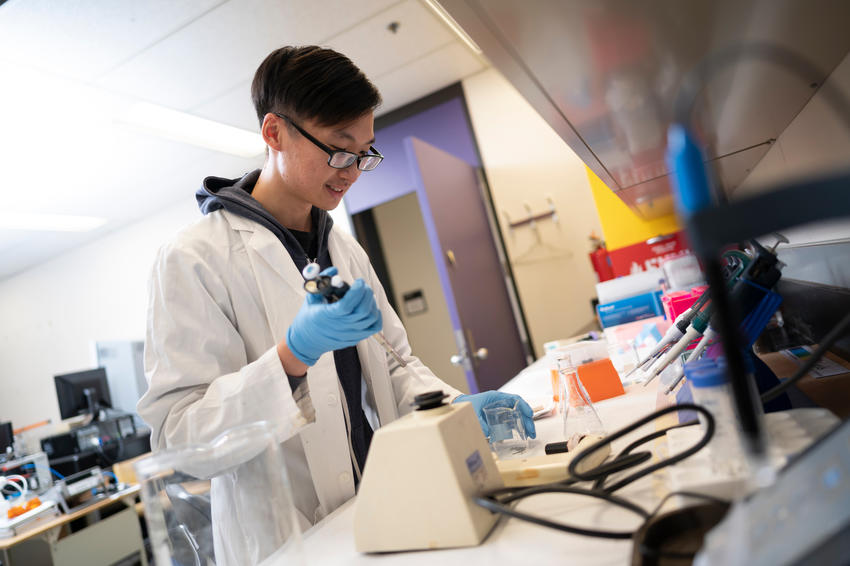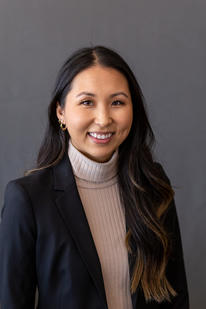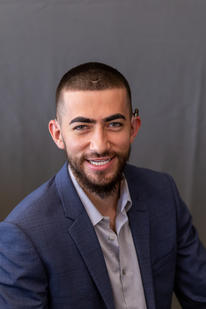Fostering a love for scientific discovery

Scientific discovery is the cornerstone to every part of dentistry. A scholar rooted in research is a stronger academician, a better clinician and a more well-rounded oral health care professional. A donor-funded program is working to ensure that students at the School of Dentistry embrace scientific discovery before the DDS program even begins.
The Student Summer Research Fellow Program at the University of Minnesota provides funding for incoming DDS students and students completing their first year of the program, who wish to spend the summer. Over a 10-week period, each student undertakes a structured research program. Fellows attend weekly training seminars, with an opportunity the following spring to prepare a written report and a poster for presentation at local and regional student research meetings. In the past, some of these students have attended national meetings such as the American Association for Dental Research.
Students decide to be part of the program for a variety of reasons; no matter their goals, they leave with a strong background in research and a better understanding of the field.
Sofia SooYoung Park, DDS ’25, had an interest in research–and in the University of Minnesota–instilled in her from a mentor in a previous position. “I was impressed by all the great resources the University of Minnesota provided me to supplement my dental education, especially with the extensive outreach and research opportunities,” she said.
Park was especially intrigued by the well-rounded education she would receive if she participated in summer research. “This was a great opportunity to get a head start on my education, where I could learn about and contribute to the current advancements of dental and craniofacial research,” she explained. “My goal is to become a forward-thinking health professional who can provide the highest-quality care to the people I treat. This program helped me get there.”
Park’s research focused on comparing osteoclast precursors in the mandible with those found in the femur. “With a better understanding of the impact of site-specific lineage in osteoclast formation and potential, we may have a better treatment option for osteopetrosis and other skeletal diseases that specifically affect the jaw,” she explained. Working with Kim Manksy, PhD, Park embraced the opportunity to settle into a new space while also getting a jump start on her education. “I not only had the opportunity to participate in some exciting research, but got to form lasting friendships with the members of my lab,” she said. “I learned a lot through each and every person–whether that was about a research approach, or just about what things to try in Minnesota for the first time.”
Alex Tabatabai, DDS ’25, also found himself interested in research before he attended the University of Minnesota–but he traces his interest in technology and curiosity back to his youth. After being born profoundly deaf, Tabatabai “had an intrinsic ability to learn new things in a deaf world where everything was visual.” Finding himself attracted to “every fine movement or vibration,” he found himself drawn to computers, programming, and “anything to do with electronics,” because of his love for “exploring what was unknown to me.”
That’s what drew him to research, too. “Research is all about exploring.” Knowing his love for the field and his desire to pursue postgraduate studies, Tabatabai hoped to get involved in research labs early on in his career. Pursuing the summer program, where he studied Artificial Intelligence that could segmentate anterior teeth and detect cavitated and non-cavitated caries on colored images, seemed like an obvious choice–and it’s one he’s grateful he made.
“I enjoyed every aspect of the summer research program,” he explained. “The program opened new doors for me and my colleague, Joseph Rahimi. We even decided to continue researching during our first semester of dental school!”
Stories like these, of students who pursue research and find answers to interesting questions, is what inspires donors like Brad Rindal, DDS ’75, to fund the fellowship. “I continue to give to the Student Summer Research Fellow Program because a first-hand research experience can enhance a dental student’s appreciation for good science and critical thinking,” said Rindal, who serves as a senior investigator for HealthPartners Institute and associate dental director for research at HealthPartners Dental Group. “That results in a better clinician.”
Fellows are grateful for the support from donors, who they know make the program possible. Park expressed her gratitude for donors who “provide a great resource for students to get involved in research.” Tabatabai agreed: “I am forever grateful to the donors who allow DDS students to be involved in research,” he said.
“We are thrilled to have their support. Through their donation, Joe and I created a dental artificial intelligence that could change the field of dentistry. Donors’ help truly makes a difference, and we are truly grateful!”
Tabatabai, Park, and other research fellows will present their findings at Research Day on March 5.

